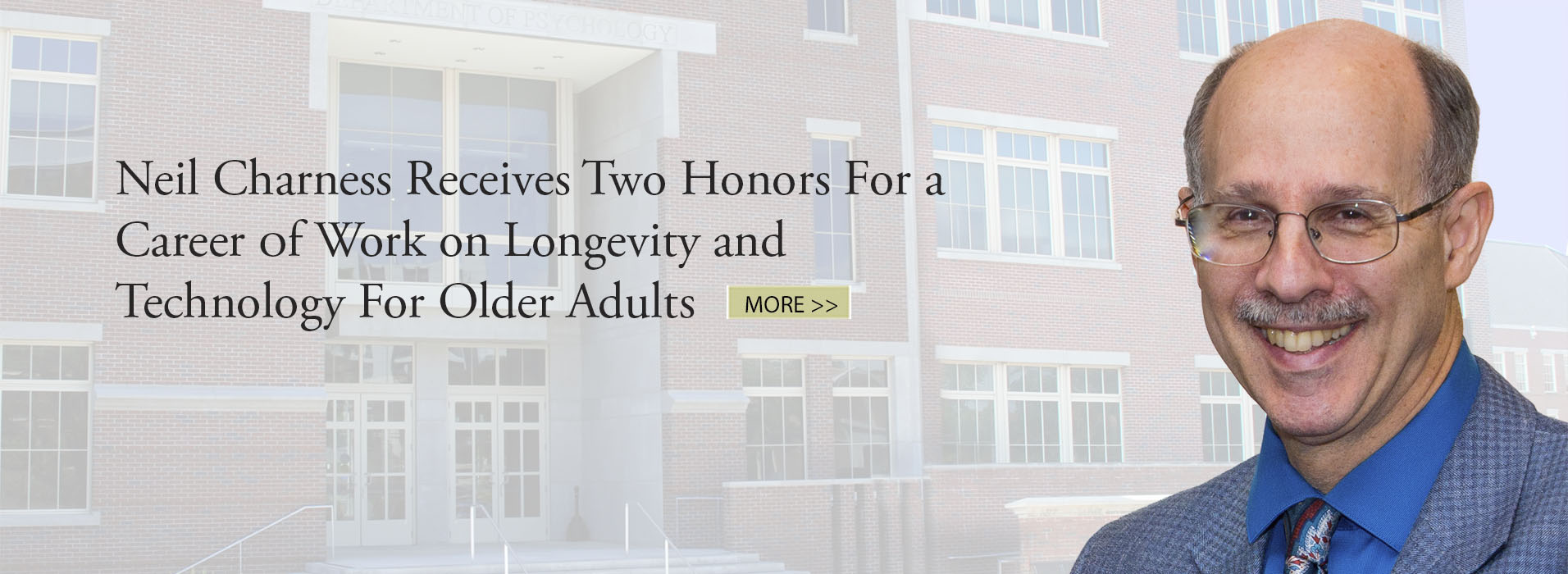Neil Charness Receives Two Honors

Neil Charness, the William G. Chase Professor of Psychology and director of FSU's Institute for Successful Longevity, has received two honors for a career of work on longevity and on technology for older adults.
Each year, the Committee on Aging of the American Psychological Association presents its Award for the Advancement of Psychology and Aging based on demonstrated excellence in five key areas: science, practice, policy, education, public interest, public affairs and service to the American Psychological Association.
"Awardees are among the most distinguished leaders in geropsychology," said Erin E. Emery-Tiburcio of Rush University and chair of APA's Committee on Aging. "We are thrilled to present this year's award to Dr. Neil Charness for his commitment to translating psychological science into practice, disseminating results to older adults and policymakers, and educating the next generation of psychological scientists about the importance of addressing the needs of older adults."
Charness said he was truly honored to be recognized by the American Psychological Association's Committee on Aging. "The committee has been highly successful at infusing aging issues into all aspects of the functioning of the American Psychological Association with its 115,000-plus members," Charness said. "FSU's Institute for Successful Longevity shares many of the same goals as the Committee on Aging, and this award is not just a credit to me but to all those who work with me at ISL."
Charness will accept the award August 11 at the APA's meetings in San Francisco.
Charness also has been inducted into the Grandmasters of Gerontechnology, a select group of experts on how technology can help older adults, by the International Society for Gerontechnology.
"Throughout his career, Dr. Charness been at the forefront of the science of aging and has made exceptional contributions to the fields of cognitive aging and gerontechnology," said Walter Boot, also of FSU's Department of Psychology, who nominated him for the Grandmaster designation. "With these contributions," Boot said, "Dr. Charness has advanced theory and practice and contributed in meaningful ways to older adults' safety, well-being, and quality of life."
Charness said he was pleased to be admitted as the society's sixth Grandmaster. "Prior Grandmasters have been pioneers in this new field, and I credit my success in part to the wonderful examples that they set in founding this new area of research."
Jeanette Taylor, chair of the Department of Psychology, said the awards show that Charness continues to be one of the most recognized authorities on cognitive processes related to aging. "This is such an important area of research that contributes to our understanding of how people age 'successfully,' Taylor said. "While I continue to be impressed with the number of awards bestowed upon Neil for his body of work, I am certainly not surprised. He is a highly valued colleague and very deserving of these latest honors."
The Institute for Successful Longevity conducts research into how to achieve longer, more productive and enjoyable lives.
